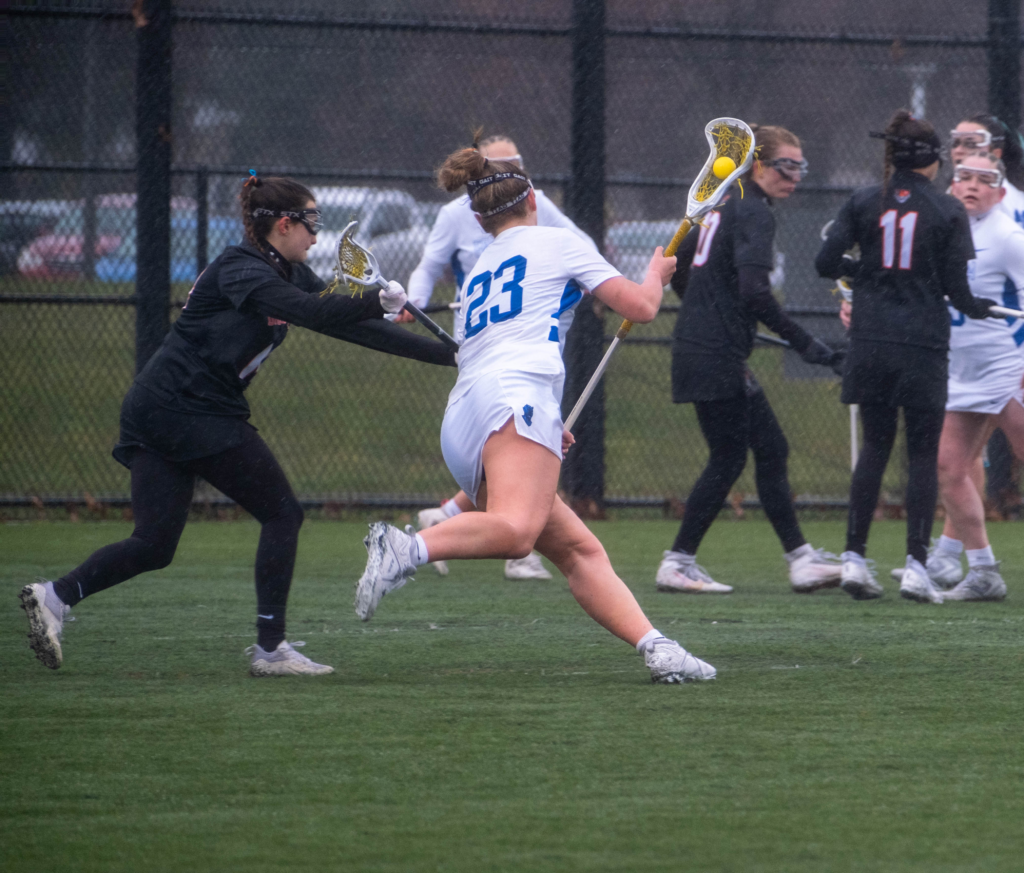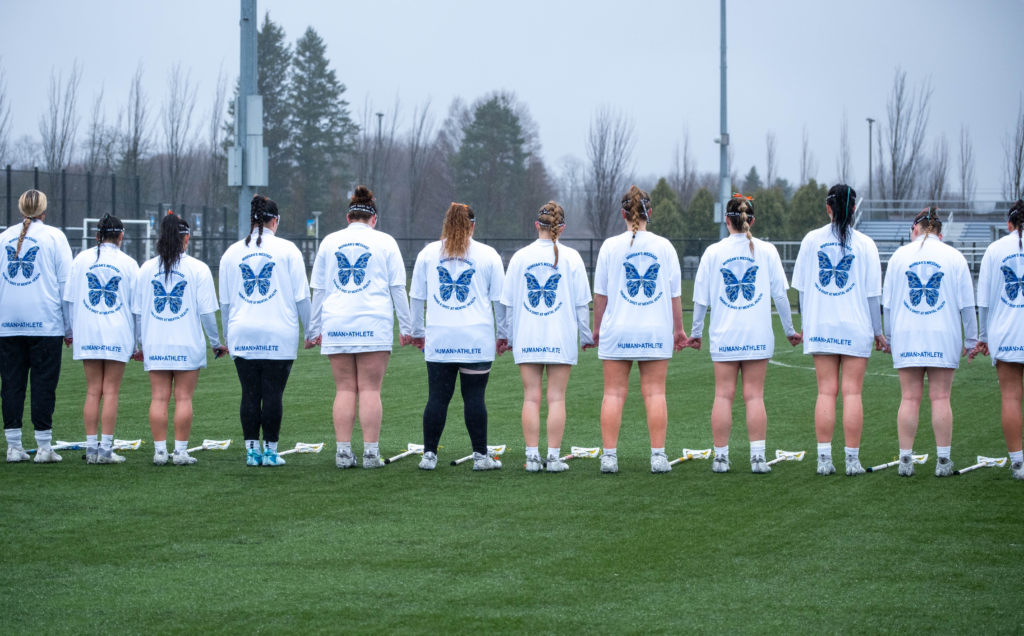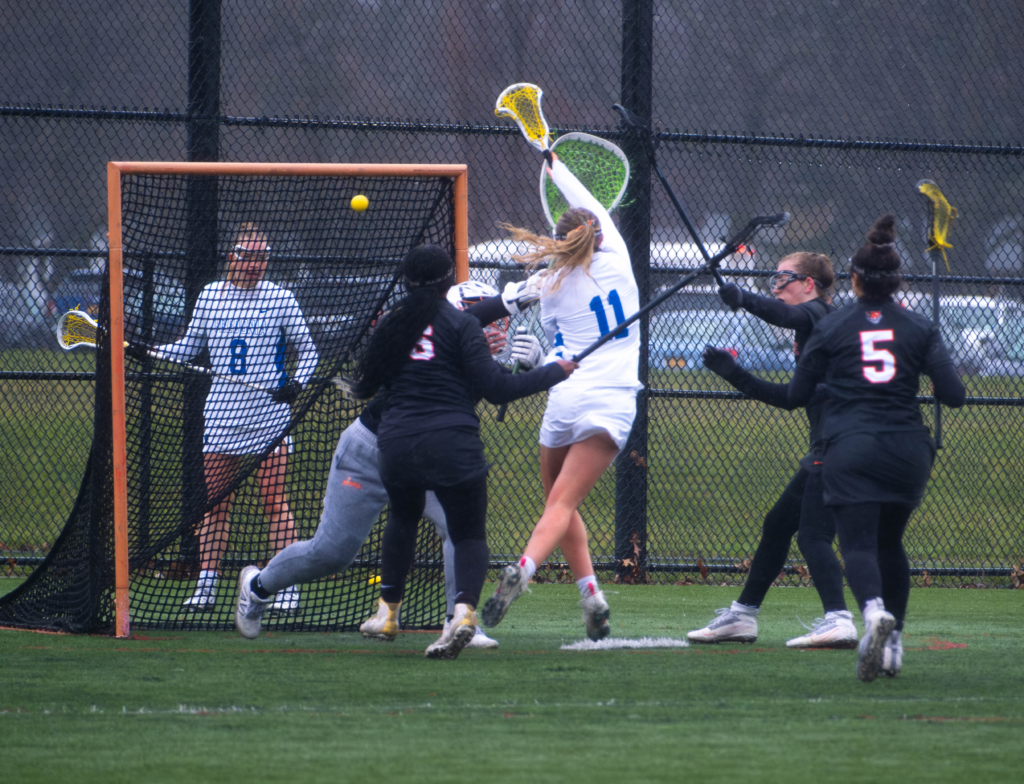PARKER GURNETT
Staff Writer
Content Warning: mentions of suicide
When athletes take the field, to some, they lose their human characteristics.
They become the face of a sport and are almost meant to be robotic and perfect at their sport in every way imaginable.
Many believe it is not fair for athletes to be expected to be perfect at everything, especially at the collegiate level.
For college athletes, there is one program that comes to mind to help support this feeling.
That program is Morgan’s Message.
Morgan’s Message was created in 2020 following the death of Duke University lacrosse player Morgan Rodgers.
In January 2017, just before the beginning of her sophomore season at Duke, Rodgers endured a horrific knee injury. She spent the next 12 months determined to return to the field, undergoing surgery and dedicating herself to an intensive rehabilitation program.
Rodgers struggled with this abrupt change because she felt she had lost control of her life.
She struggled with her mental health, keeping it from her friends and family.
As a result, her sense of self-worth plummeted, and on July 11, 2019, at just 22 years old, she died after committing suicide.

In 2020, Morgan’s Message was created in her honor to help eliminate the stigma surrounding mental health among high school and collegiate athletes.
On Wednesday, April 3, the Fredonia women’s lacrosse team hosted its first Morgan’s Message tribute game against Buffalo State University.
They would wind up losing this game 13-11, but to many, this game was bigger than the score.
That’s especially true to junior Emma Cockerel who helped bring Morgan’s Message to Fredonia.
“This summer, I did a lot of reflecting on myself, and what I needed to do to help myself and my peers. Mental health plays such a big role in my life, so when I discovered Morgan’s Message, I immediately felt a personal connection to their mission.” Cockerel said. “I ended up bringing this organization to our campus. I became an ambassador for Morgan’s Message, and am now the president of the club here on campus. Being a student-athlete along with running this club has added a lot to my plate, but it is one of the most rewarding challenges that I have ever faced and I am honored to help eliminate the stigma surrounding mental health.”
So many college athletes feel the stigma surrounding mental health as being something to push off and ignore because they are expected to perform to an elite level on the playing field.

The reality is that college athletes are playing sports at an amateur level and should not be held to the same standards as professional athletes.
Unfortunately, this is not the case in many scenarios, though.
When we asked members of the Women’s Lacrosse team what this Morgan’s Message game meant to them, we got the same answers; they were happy and proud.
“The Morgan’s Message game to me means that mental health is being treated and paid attention to more, especially in athletes,” said junior Alexa Ventura.
“Playing for Morgan’s Message means getting to spread awareness and being able to play for something bigger than me, our team or the sport,” said sophomore Alyssa Vukosic.
Vukosic’s statement really hits home for not only athletes but for everyone, as spreading awareness of the stigma around mental health is bigger than the sport or a team and must continue to be fought for.
“In the world of athletics, many were told to be tough and to battle through adversity both physically and mentally. Because of this,many grew up bottling feelings and struggles inside,” said freshman Ella Forrest. “This can lead to extremely destructive behavior as well as thinking you are alone in your feelings. Bringing awareness lets others know that there are better days and that it’s not something to struggle with in silence.”
“Mental health is such an important topic for athletes and non-athletes. The stigma around mental health and athletes can result in athletes not reaching out for help,” said senior Sarah Guariglia.“Bringing awareness to this topic allows athletes to know that they are not alone and that there are people out there that care about them and want them to seek help.”
Junior Audrey Brown echoed the Morgan’s Message sentiment “Human>Athlete,” which points out the core lesson here.
Athletes are humans before they are athletes and more people need to recognize this. You may be an athlete on the field, but when you’re on the field, you’re still human.
Everyone has feelings and everyone has their personal battles that they go through. And thanks to Morgan’s Message, college athletes don’t have to go through it alone and will always have support right there for them.
If you’re struggling with mental health, do not be afraid to reach out, because you are not alone.
For Fredonia students, there is a Counseling Center in Lograsso Hall.
Call the office at 716-673-3424 to inquire about services and to schedule appointments.

